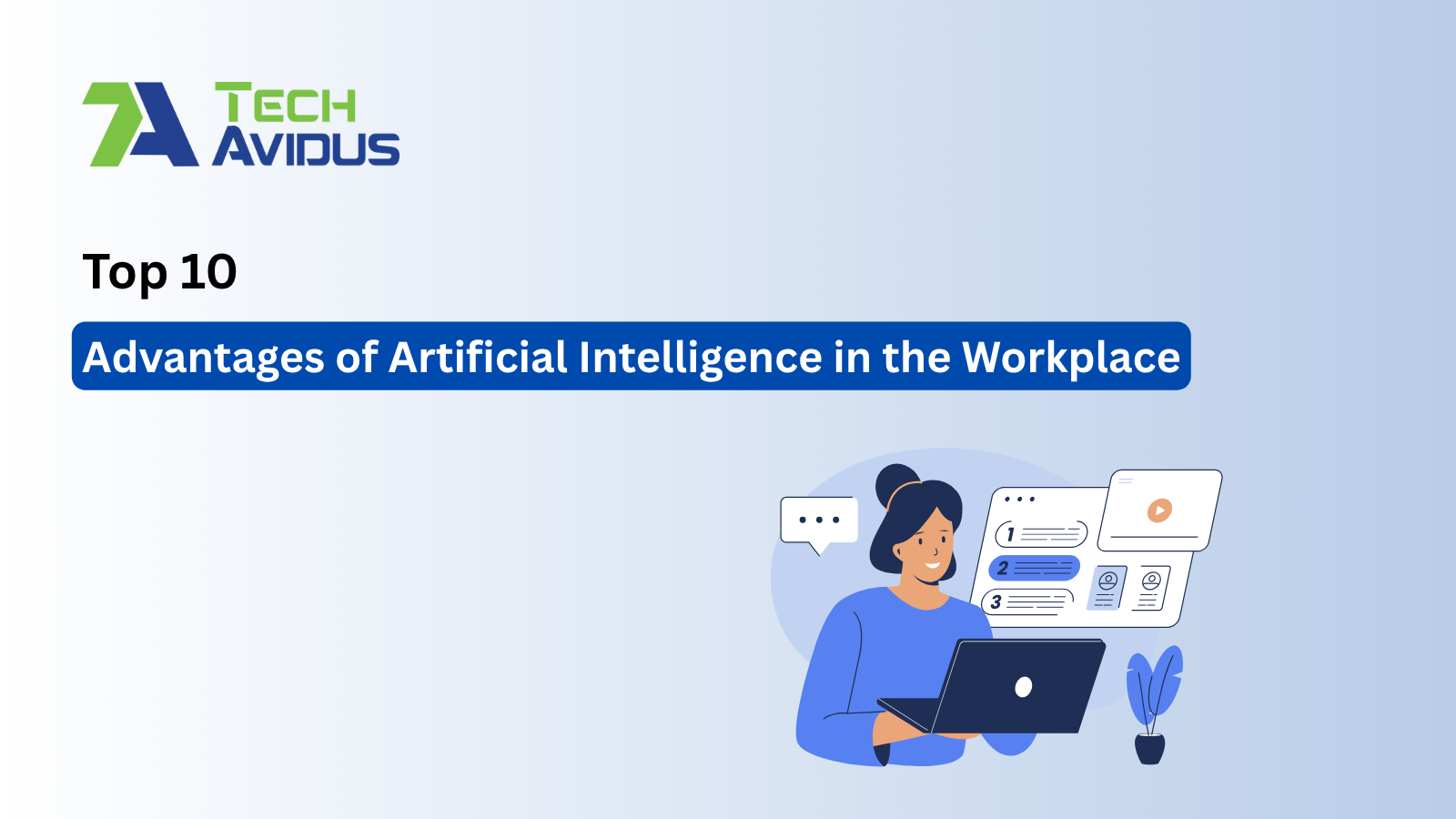
Artificial Intelligence in the Workplace has rapidly transformed various aspects of our lives, and the workplace is no exception. With its ability to process vast amounts of data, learn from patterns, and make intelligent decisions, AI has become a valuable tool for businesses across different industries. The integration of Artificial Intelligence in the Workplace is not just a trend; it's a strategic move towards increased efficiency, automation of routine tasks, and unlocking new possibilities for innovation and growth. As AI continues to evolve, its presence in the workplace is set to redefine how we work, collaborate, and achieve our professional goals.
Over the past few years, many companies have invested more money in artificial intelligence (AI) and machine learning (ML) technologies over the past few years. Around 83% of businesses have increased their budgets for these technologies since 2019. That means that more and more organizations are using AI tools to automate their tasks and keep up with their competitors in the market. As time passes, the trend of adopting AI is growing, and it is becoming increasingly important for companies to stay updated with these technologies to remain competitive. This blog will explore the top 10 advantages of artificial intelligence in the workplace and how it revolutionizes our work.
Increased Efficiency and Productivity:
One of the significant advantages of AI in the workplace is its ability to automate routine and repetitive tasks. By taking over mundane activities, AI frees up valuable time for employees to focus on more complex and strategic initiatives. That leads to increased efficiency, improved productivity, and accomplishing tasks faster.
Workplace Automation:
Using artificial intelligence in the workplace will bring many changes. AI-driven robotic process automation (RPA) enables the automation of manual and repetitive tasks, reducing human errors and improving operational efficiency. RPA bots can perform tasks such as data entry, report generation, and invoice processing, freeing employees to focus on more strategic and creative aspects of their work.
Efficient Data Analysis:
Big data has become a valuable asset for businesses, but its sheer volume and complexity can take time and effort to manage. AI algorithms can analyze large datasets, identify patterns, and extract actionable insights. That enables businesses to make data-driven decisions, uncover hidden opportunities, and predict future trends, ultimately gaining a competitive edge in the market.
Reduce Employee Turnover
Adopting artificial intelligence in the workplace can positively impact employee turnover rates, ultimately benefiting a business's profitability and productivity. By creating stress-free work environments through AI integration, enterprises can foster a sense of enthusiasm and motivation among employees, making them less inclined to seek alternative employment opportunities.
Predictive Maintenance:
In industries such as manufacturing and logistics, AI-powered predictive maintenance can significantly reduce downtime and maintenance costs. By analyzing real-time sensor data, AI algorithms can detect patterns indicative of equipment failures and alert maintenance teams in advance. This proactive approach minimizes unexpected breakdowns, optimizes maintenance schedules, and extends the lifespan of critical assets.
Enhanced Decision-Making:
AI algorithms can analyze vast amounts of data quickly and accurately. By leveraging machine learning and predictive analytics, AI systems can identify patterns, trends, and insights that human decision-makers might miss. This data-driven decision-making helps businesses make more informed choices, optimize strategies, and achieve better outcomes.
Enhanced Cybersecurity:
As technology advances, so does the sophistication of cyber threats. AI helps fortify security measures by continuously monitoring network activities, identifying anomalies, and detecting potential threats. Machine learning algorithms can quickly analyze vast amounts of data to detect patterns associated with cyberattacks, helping organizations proactively prevent security breaches and safeguard sensitive information.
Improved Customer Service:
By implementing AI in the workplace, we can stay connected 24/7. AI-driven chatbots and virtual assistants have revolutionized customer service. These intelligent systems can understand and respond to customer queries in real-time, providing personalized and efficient support. With 24/7 availability, AI-powered customer service ensures timely and consistent responses, ultimately enhancing customer satisfaction and loyalty.
Streamlined Recruitment Process:
AI simplifies and optimizes recruitment by automating candidate screening, resume parsing, and applicant tracking. With AI algorithms, organizations can identify the most suitable candidates based on predefined criteria, reducing manual effort and saving time. Additionally, AI can analyze employee data to identify patterns contributing to successful hires, enabling recruiters to make data-driven decisions.
Continuous Learning and Adaptation:
AI systems can continuously learn from data, user interactions, and feedback, allowing them to adapt and improve over time. Learning and evolving are invaluable in a rapidly changing business landscape. AI-driven insights and recommendations become more accurate, leading to better outcomes and competitive advantage.
Our Top 1% Tech Talent integrates cutting-edge AI technologies to craft intelligent, scalable, and future-ready solutions.
All Rights Reserved. Copyright © 2025 | TechAvidus